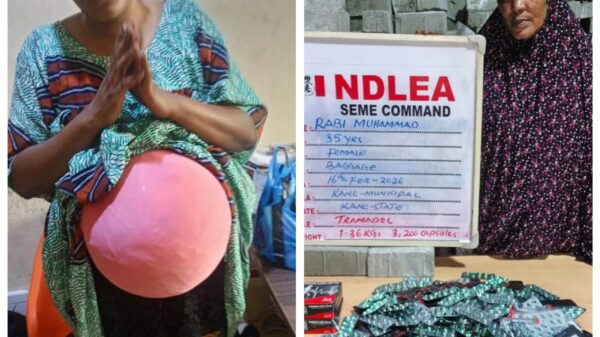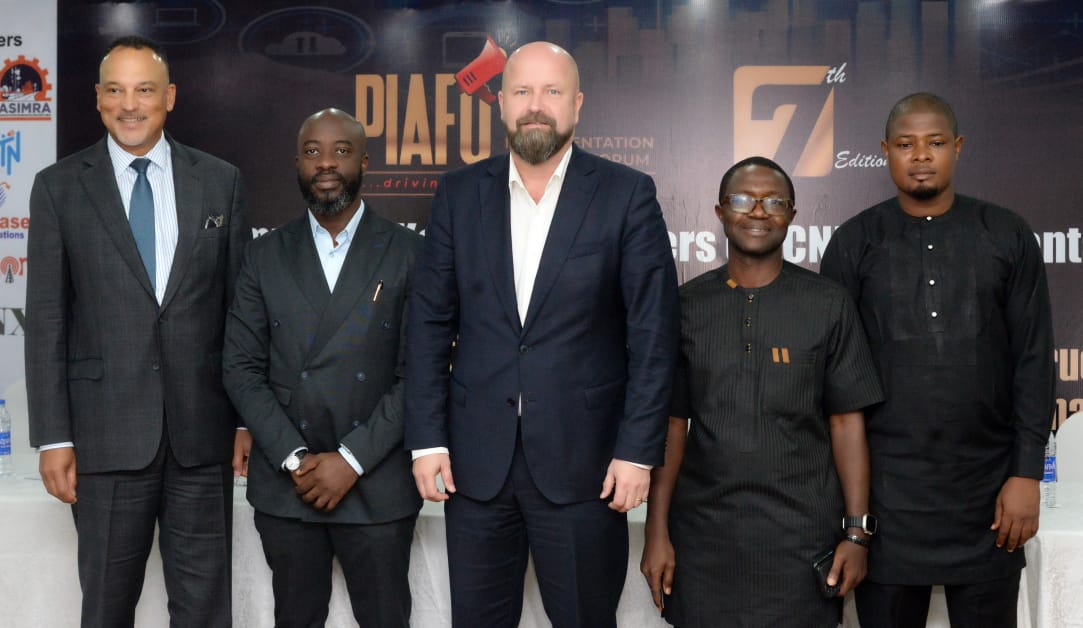Industry leaders at a summit on the implementation of Critical National Information Infrastructure (CNII) framework in Nigeria have established a direct link between Nigeria’s $1 trillion economy ambition and the critical roles of digital infrastructure in the country.
During a panel session titled Appraisal of Data Centre Infrastructure Risks in the Scheme of CNII Implementation, they underscored the need for robust investments in data centers, broadband expansion, and cybersecurity.
Moderated by Yemi Adepetun, Assistant Business Editor at The Guardian Newspaper, the session featured insights from top industry executives, who stressed that Nigeria’s digital economy hinges on resilient infrastructure, energy integration, and strategic policy implementation.
Participants are the Chief Executive Officer, Open Access Data Centre (OADC), Dr. Ayotunde Coker; CEO of Rack Centre, Lars Johannisson; and Director of Legal (Global and Regional Business Affairs) at Equinix, Mr. Abayomi Adebanjo.
The panel session formed a part of the just concluded seventh edition of Policy Implementation Assisted Forum (PIAFo) with the theme: “Strengthening Protection of Critical Information Infrastructure through Proactive Implementation and Strategic Coordination.”
Strengthening Nigeria’s Digital Backbone
OADC boss, Coker, highlighted the fundamental role of digital infrastructure in driving economic growth. He pointed out that connectivity, data centers, and power must be aligned to ensure digital resilience.
Dr. Coker acknowledged Nigeria’s recent progress in restoring connectivity through increased subsea cable capacity, citing Meta’s new subsea cable project as a significant boost to global connectivity. However, he stressed the urgency of upgrading outdated subsea cables and fast-tracking infrastructure projects such as the Equiano and 2Africa cables.
With the government’s plan to expand fibre optic capacity by 90,000 kilometers, Dr. Coker emphasized the direct economic impact of broadband penetration, stating that a 10% increase could contribute 2.5% GDP growth. He also noted that while South Africa houses 50% of Africa’s data center infrastructure, Nigeria must scale up investments to bridge the gap and compete on a global level.
“The future of our digital economy depends on the seamless integration of connectivity, power, and data centers,” Dr. Coker asserted, calling for greater collaboration between private and public stakeholders.
Challenges in Execution and Investment
Mr. Johannisson echoed Dr. Coker’s sentiments, applauding Nigeria’s digital progress but warning that execution remains a major hurdle.
He highlighted asset protection policies as a key factor in attracting foreign investments.
Johannisson revealed that every megawatt of data center capacity requires an investment of approximately €12-15 million, with 70 megawatts currently in the pipeline.
He also stressed the importance of decentralizing data centers beyond Lagos to ensure broader access and affordability, especially with the pressing need for edge infrastructure which requires data centre spread across the country.
“If inefficiencies drive up costs, digital services will remain inaccessible to large segments of the population,” he warned.
Looking ahead, Johannisson emphasized the need to maintain cost-effective infrastructure investments to achieve Nigeria’s broadband penetration target of 80% by 2030.
Security, Power, and Government Support
Meanwhile, Abayomi Adebanjo, Director of Legal (Global and Regional Business Affairs) at Equinix, focused on the intersection of digital infrastructure and national security.
He underscored the vulnerability of critical networks to cyber threats and called for stricter security measures at both physical and digital levels.
Adebanjo also identified major gaps in Nigeria’s Critical National Information Infrastructure (CNII) framework, urging the government to take a more active role in enforcing protection programs.
He cited persistent issues such as fiber cable theft and legal obstacles in prosecuting offenders as deterrents to investment.
Recognising the significant power demands of data centers—comparable to large industrial operations such as the Dangote refinery—Adebanjo advocated for incentives such as designated special zones for data centers and priority access to electricity.
“Ireland is a prime example of how a stable regulatory and power supply environment can attract foreign direct investment,” Adebanjo noted, urging Nigerian policymakers to adopt similar strategies.
The Path Forward
The discussions at PIAFo underscored that Nigeria’s ambition to achieve a $1 trillion economy hinges on its ability to create a conducive environment for data centers and digital infrastructure growth.
In his opening remarks, Convener of PIAFo, Mr. Omobayo Azeez, stressed the need for concerted efforts among stakeholders to protect existing infrastructure and attract new investments to secure the digital future of the country.
Industry leaders agreed that increased broadband penetration, strategic investment, and supportive government policies are critical to bridging the digital divide and ensuring long-term sustainability.
With a growing commitment from both public and private sectors, Nigeria stands at a pivotal moment in its digital transformation journey—one that will define its economic trajectory for decades to come.
L-R: Chief Executive Officer, Open Access Data Centre, Dr. Ayotunde Coker; Director, Legal (Global & Regional Business Affairs), Equinix, Abayomi Adebanjo; Chief Executive Officer, Rack Centre, Lars Johannisson; Ass. Business Editor and panel moderator, Yemi Adepetun; and Convener, Policy Implementation Assisted Forum (PIAFo), Omobayo Azeez, at the 7th PIAFo Summit on Critical National Information Infrastructure held in Lagos on Thursday.
![]()





























































